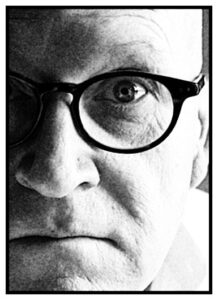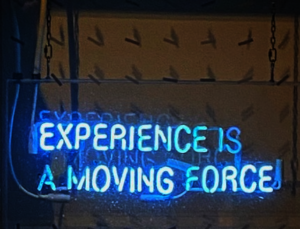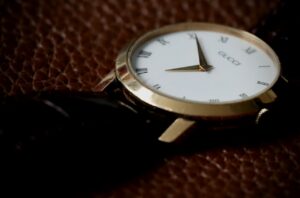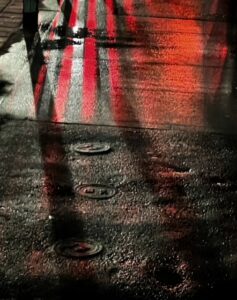 I wrote this five years ago.
I wrote this five years ago.
In that time, my condition has changed but attitudes have not.
You do not see what I see. We all see everything differently.
We count on our eyes, daily, to navigate our way through this life. We count on our eyes to witness everyday events with friends and family, capture beauty, and see the dangers ahead.
Each of us interprets what we see.
This is highly personal.
You do not see as I do because I have a visual disability. You cannot even imagine how long it has taken me to say that out loud, even as I began to realize, or understand, what I am dealing with.
It is far more than pride.
By admitting I have a disability, I am confessing to a flaw. This is a hard thing to admit to anybody, let alone yourself.
It is highly personal.
When faced with diminished eyesight, at any level, you begin to think about how, and why, you use your eyes. My vision has always been important to me. My first career and educational training was in photography. I worked for many years as a photographer, then a writer, with a mid-size Canadian newspaper. What I saw became what readers of the paper read and looked at daily.
Even now, as a writer, my eyes are what allows me to place ideas, poems, and thoughts on a page. This is important to me.
My eyesight is now limited, in some way. I’m not sure if I can call it mild. At this point I still function well with most daily duties. I do not require a white cane (perhaps the greatest stereotype surrounding a visual disability), I can drive (save night vision, and my choice not to drive at night), and, for the most part, I get along well.
I have been receiving treatment, in the form of monthly injections, and have adjusted the prescription to eyeglasses I’ve worn since age five. Seeing things at a distance, or just the everyday stuff you associate with getting around, has not been substantially altered.
The difficulty I have been having is with my field of vision at close range – particularly when doing certain tasks, or multi-tasking at the computer. This, of course, begins to create problems with employment.
We all know most jobs now require an element of computer literacy and time in front of a monitor. Our lives are now, pretty much, reliant on a screen of one size or the other. We all text, we tap, to keep up, to communicate, to get our news and views, or do our shopping or banking.
I can do all of that, and with some consistency. I, however, have problems when running multiple programs on multiple platforms. This is a daily occurrence at work, and this goes past the eyestrain we all experience when you spend too much time in front of a screen (we probably all do).
My eyes do not react quickly, not as they once did, and this is not about age. This is more than a period of adjustment for me.
The greatest difficulty I encounter is that my disability is invisible.
Nobody sees how I see. Nobody sees that I have, or could have, potential problems.
Instead, I become the problem when I tell them I have a disability. I shouldn’t need to explain my impairment to the degree they are asking, and still they ask; or they ignore; or they doubt.
There is a stigma attached to the word disability. Many people believe disability means difficulty. I know this personally.
I continue to have difficulties with daily work required of me, even after months of adjustments and consultations, and appointments with medical professionals. Some of the measures have worked to a degree, yet some of the difficulties have not been about me, but rather the faulty equipment I have been working with. I question if the acuity of my vision will be further damaged by prolonged exposure.
This remains a contentious issue, obviously, because it has not been corrected. I, still, routinely experience eye strain, blurred vision and headaches like I have never encountered.
It hurts, yes.
What hurts even more is the lack of understanding, even ignorance, and attitude towards the disability I am facing.
We don’t see things the same. Some people don’t even have the foresight, or sensitivity, to look beyond stigma and stereotypes.
I’m choosing to look further ahead.
© 2018 j.g. lewis
 What we leave behind, discard or forget, accumulates.
What we leave behind, discard or forget, accumulates. 


